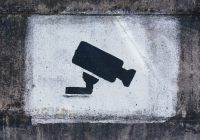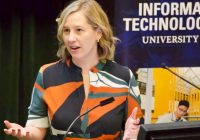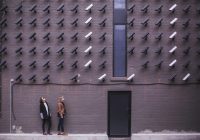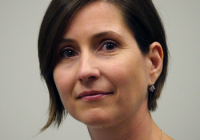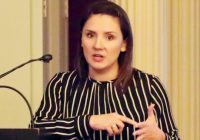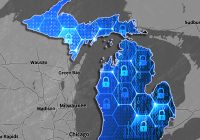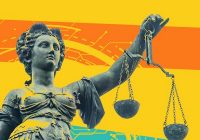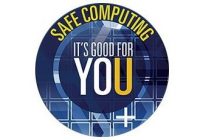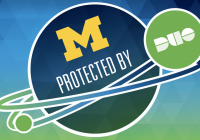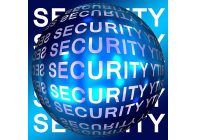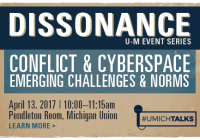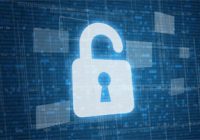Tag Archives: policy
Updated and Upcoming IT Policies and Standards
Study finds facial recognition technology in schools presents problems, recommends ban
Research reveals inaccuracy, racial inequity and increased surveillance are the touchstones of a flawed technology. Facial recognition technology should be banned for use in schools, according to a new study by the University of Michigan’s Ford School of Public Policy that cites the heightened risk of racism and potential for privacy erosion. The study by the Ford School’s… Read More »
Data protection course for use in your unit
How can you help people in your unit become aware of their basic data protection responsibilities? Encourage them to take this new, university-focused online course from ITS Information Assurance: DCE101 U-M Data Protection and Responsible Use (in My LINC). The completely new course provides practical guidance and best practices. It replaces what used to be called “DCE101: Access… Read More »
Privacy@Michigan speakers call for more privacy protection
Faculty, staff, and students gathered for a half-day of privacy related speakers and panels at Privacy@Michigan January 28 at the Rackham Building on the UM-Ann Arbor campus. Privacy@Michigan is an annual event hosted by ITS Information Assurance and the U-M School of Information in recognition of Data Privacy Day. If you missed it, you can watch the recordings… Read More »
When privacy becomes a thing
Svetla Sytch, the recently named assistant director of privacy and IT policy for U-M, brings a unique perspective on privacy and its role in higher education. “When I was growing up in communist Bulgaria, privacy was not a thing. Come to think of it, we did not even have a word for it,” she wrote recently in an… Read More »
Svetla Sytch named assistant director of privacy and IT policy
Svetla Sytch joined ITS Information Assurance (IA) as assistant director of privacy and IT policy on November 25. In this role, she will work with partners across the university to craft strategies and lead operational efforts that weave privacy, policy, and data governance into the way the university engages in its teaching, learning, research and administrative activities. “Svetla… Read More »
Colleges need to focus on societal impact of new tech
In a recent article in “The Chronicle of Higher Education”, Shobita Parthasarathy, professor at the Gerald R. Ford School of Public Policy, called on colleges to teach future scientists, engineers, and policy makers, to think critically about the societal impact of new technologies. “Colleges must train the next generation of scientists, engineers, and policy makers to think more… Read More »
Dissonance events explore tech-based policy and legal subjects
Technology changes at an ever-increasing rate, almost always outstripping policy, privacy, security, and legal considerations. ITS Information Assurance (IA) collaborates with faculty, researchers, students, and external industry experts to create a forum, Dissonance, for public discourse on the tensions surrounding technology, policy, privacy, security, and law.
Halderman co-chairs new commission to protect Michigan votes
Michigan Secretary of State Jocelyn Benson recently announced a new Election Security Commission to be co-chaired by U-M professor of computer science and engineering J. Alex Halderman. His work in voting security and in particular electronic voting machines has positioned him as a preeminent expert in the field. Halderman has made multiple contributions to election security advocacy at… Read More »
Learn about implementing new info security standards
How do the new information security standards and the revised Information Security (SPG 601.27) policy affect your work? Information Assurance (IA) is hosting working sessions for members of the U-M community interested in learning about implementing the policy and standards. Upcoming sessions: Thursday, April 4 (1:30-3:30 p.m.). This session will cover Security Log Collection, Analysis, and Retention (DS-19)… Read More »
U-M part of network to build public interest technology field
The University of Michigan has joined the Public Interest Technology University Network, a new partnership of 21 colleges and universities dedicated to building the nascent field of public interest technology and growing a new generation of civic-minded technologists. Started by the Ford Foundation, Hewlett Foundation, and New America, the network represents a powerful alignment across sectors as part… Read More »
Does social media really make a difference in vaccination rates?
Social media companies face increasing scrutiny for amplifying fringe anti-vaccine sentiment amid measles outbreaks in several states like Washington. In response, Facebook, YouTube and Pinterest recently made headlines by announcing initiatives to reduce vaccine misinformation on their platforms. Brendan Nyhan, a professor of public policy at the Ford School, recently wrote in “The New York Times” that while… Read More »
Feb. 22: Attend a session on IT security standards
IT security and privacy: Keeping you and the U safe
U-M Information Security policy: Revised and approved
The revised University of Michigan Information Security policy (SPG 601.27) recently was approved, along with a number of new information technology standards. The policy and accompanying standards represent the most comprehensive revision of the institution’s information security program since its inception over a decade ago. SPG 601.27 and the standards are based on a cybersecurity risk management framework that… Read More »
Report finds sexual harassment policies in academia lacking
Lilia M. Cortina, Timothy R.B. Johnson, and Anna Kirkland are U-M professors who participated on a 21-person committee to change the culture around sexual harassment policies in academia. The report from the National Academies of Sciences, Engineering and Medicine finds that academic institutions can do more to prevent sexual harassment, especially in historically male-dominated STEM fields. According to… Read More »
What happened when the dean’s office stopped sending emails after hours
When LSA English professor Anne Curzan became associate dean for humanities several years ago, she—like many professors who take on administrative roles—was overwhelmed by the uptick in email traffic she faced. It also became clear that the majority of people in the dean’s office were swimming in email as well, spending hours every evening dealing with messages that had… Read More »
‘Dissonance’ speakers discuss conflict & cyberspace
On April 13, a panel of experts discussed the development of international cyberspace norms. The event was part of the Dissonance, an ongoing speaker series that explores timely topics at the confluence of technology, law, privacy, and security. Watch the recording Event highlights Discussion points included what constitutes responsible state behavior in cyberspace, the differences between physical attacks and cyberattacks,… Read More »
Review new sensitive data classifications
To support the proposed revision of the IT Security Policy, Information Assurance has published revised U-M Data Classification Levels on Safe Computing. The revised policy will be supported and supplemented by specific operational, procedural, and technical standards, many of which specify actions to take based on the classification level of the data involved. The new data classification levels… Read More »



